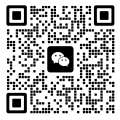Top 5 Holykell Wireless Gateways for Industrial Sensors
Holykell offers various wireless gateways and we list the TOP 5 as below:
What is A Wireless Gateway?
A wireless gateway is a device that connects different communication networks, from a wired or a wireless WAN, allowing them to communicate with each other. It acts as a bridge, facilitating the exchange of data between devices or networks that use different communication protocols. Wireless gateways play a crucial role in enabling seamless communication in various applications, especially industrial measurement and settings.
Our selection of wireless gateways are compatible with almost all the existing pressure sensors, flow meters, level sensors, temperature sensors and so on, and users can also use their own devices or systems at the same time.
Each type of wireless gateway has its own unique advantages.
HK301 DTU Wireless transmission module
Qty of Sensors that can be Connected: 3
Input: RS485 Power supply: 8~28VDC
Power consumption: 20-40mA @+24V
Operating temp.: -20~60℃
Communication interface: TTL, RS232, RS485
Features
●Full network design
●Simple and flexible networking, and the data transmission delay is generally 1s.
●Embedded TCP/IP protocol stack to realize transparent transmission between machines
●Support point-to-point, center-to-multipoint peer-to-peer data transmission
●The data terminal supports always-on working mode
●Supports automatic reconnection & automatic restart after disconnection
●Support SMS remote query of configuration parameters, remote restart, and remote parameters configuration

HK302 RTU Wireless acquisition module
Number of sensors that can be connected: 3
Input: 0-5V,4-20mA
Measurement error: 0.1
Power supply: 8~28VDC
Power consumption: 45~60mA @+24V
Operating temp.:-35~70℃
Cloud platform communication: TCP, MQTT, MODBUS RTU
Communication method: RS485, Ethernet, 4G, WIFI
Features
●New MINI PCIE pluggable module, with stronger compatibility and scalability
●Automotive-grade three-channel independent data acquisition and AD conversion, with higher accuracy
●Support remote offline program upgrade
●Compatible with SMD SIM card, extreme environment capable
●Fully protected input & output ports to prevent misinsertion & anti-static, and the collection port can withstand long-term 28V power supply shock
●Automatic reconnection when offline and false link processing
●One relay output alarm
HK308 Multifunctional RTU, DTU
Number of sensors that can be connected: 16
Input: 0-5V,4-20mA,RS485
Accuracy:Acquisition accuracy,0.2%/Output accuracy,0.3%
Power supply:12-24VDC
Operating temp.:-20~60℃
Communication method:RS485,Ethernet,4G,WIFI

Features
●RS485 DTU, either wireless or wired connection platform, public socket or independent socket available
●Setting most parameters on the screen, viewing equipment operation information & operation faults
●Large-capacity historical storage, 1 full year of data storage (10 sec/time)
●USB settings and data export (CSV format)
●Modbus tcp server, tcp client, mqtt, Modbus rtu connection supported
●Searching for devices & configurations within the network port LAN supported
●Real-time clock calibration
H3 Wireless Data Recorder
Number of sensors that can be connected:8
Input: Current, voltage, thermal resistance, thermocouple…
Display: 7″ touch LCD display
Basic error: ±0.2%F·S
Power supply: 24VDC
Operating temp.: -10~50℃
Communication method: RS485,Ethernet,4G,LORA

Features
●HD color touch screen with CCFL backlight displays true color images & values
●ARM microprocessor can realize multi-channel signal collection, recording, display and alarm at the same time
●70MB large-capacity FLASH memory chip to store historical data that will never be lost when power fails
●Support fully isolated universal input, multiple signals input at the same time, no need to replace the module, just set it directly on the instrument
●Parameter setting, display project tag number, project unit, flow accumulation…
●Red alarm display
●Support external micro-printing, built-in printer, manual printing of data & curves, automatic scheduled printing (customized)
●Equipped with standard USB2.0 interface. It can be operated by mouse and keyboard to output historical data
●Passed EMC III level to ensure normal work in harsh environments
HW300 Data acquisition module
Number of sensors that can be connected: 32
Input: LoRa Current: 150mA(24V)
Accuracy: ±0.02%
Power supply: DC8-28V
Operating temp.: -20℃~60℃
Communication method: 4G,2G,WIFI,LORA,ZIGBEE,Ethernet,RS485

Features
●7 communication methods
●0.02% high sampling accuracy
●32 channels of simultaneous acquisition supported
●7×24 hours high pressure resistance
How to Select Between The Five Wireless Gateways
Below table for your easy reference.

We can also customize other signals for you. Contact Holykell for more for details.
Holykell Wireless Monitoring Solutions

FAQs
1.Is a wireless gateway the same as a Wi-Fi gateway?
Not exactly. Wireless gateway and Wi-Fi gateway sometimes can be used interchangeably, but they can have distinct meanings. In general, a wireless gateway is a broad term that encompasses devices facilitating communication between different networks wirelessly. On the other hand, a Wi-Fi gateway typically refers to a specific type of wireless gateway that provides Wi-Fi connectivity.
2.Why is a gateway important in wireless sensor network?
A gateway is essential in a wireless sensor network to aggregate data, provide connectivity to external networks, ensure efficient communication, manage network resources, enhance security, and enable the integration of sensor data with broader systems and applications. It allows the management (control) of the network and aggregates the information received from the nodes to send real-time or near real-time data to a user platform.
Related Posts
1.Wireless Networking for Rainwater Harvesting System
2.What are Advantages of Wireless Sensor Network
3.Learn More About IoT Wireless Sensors





